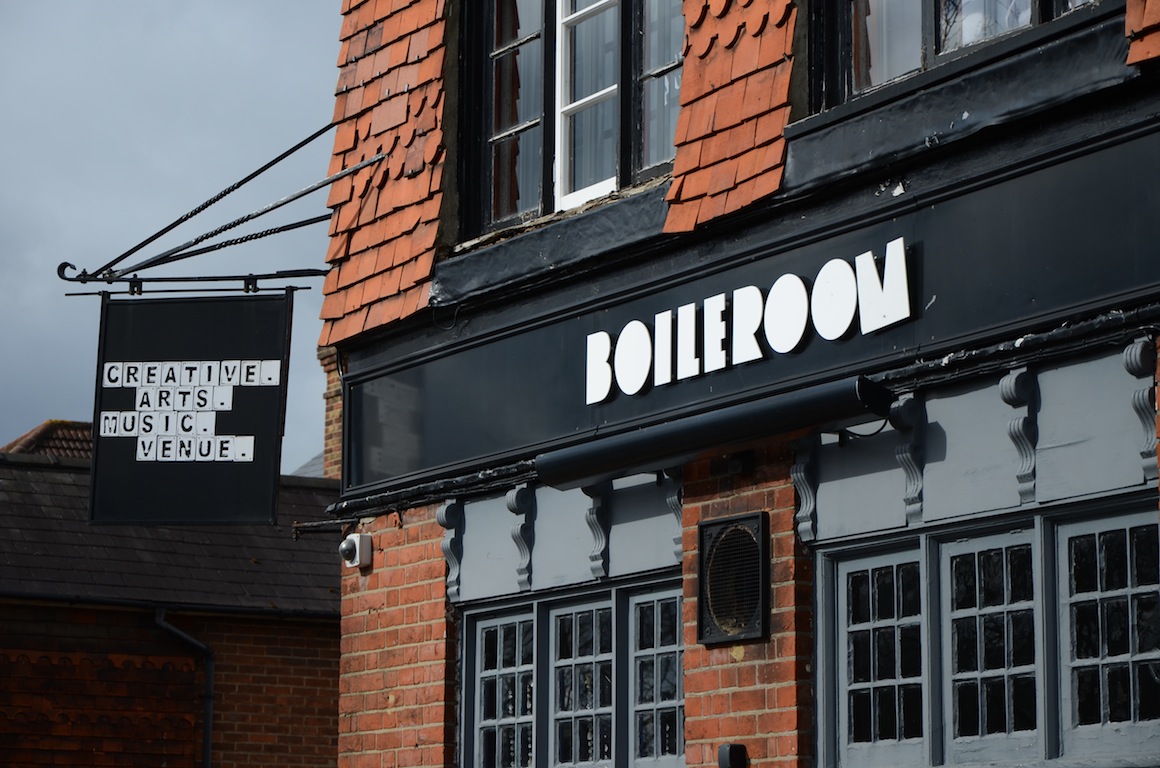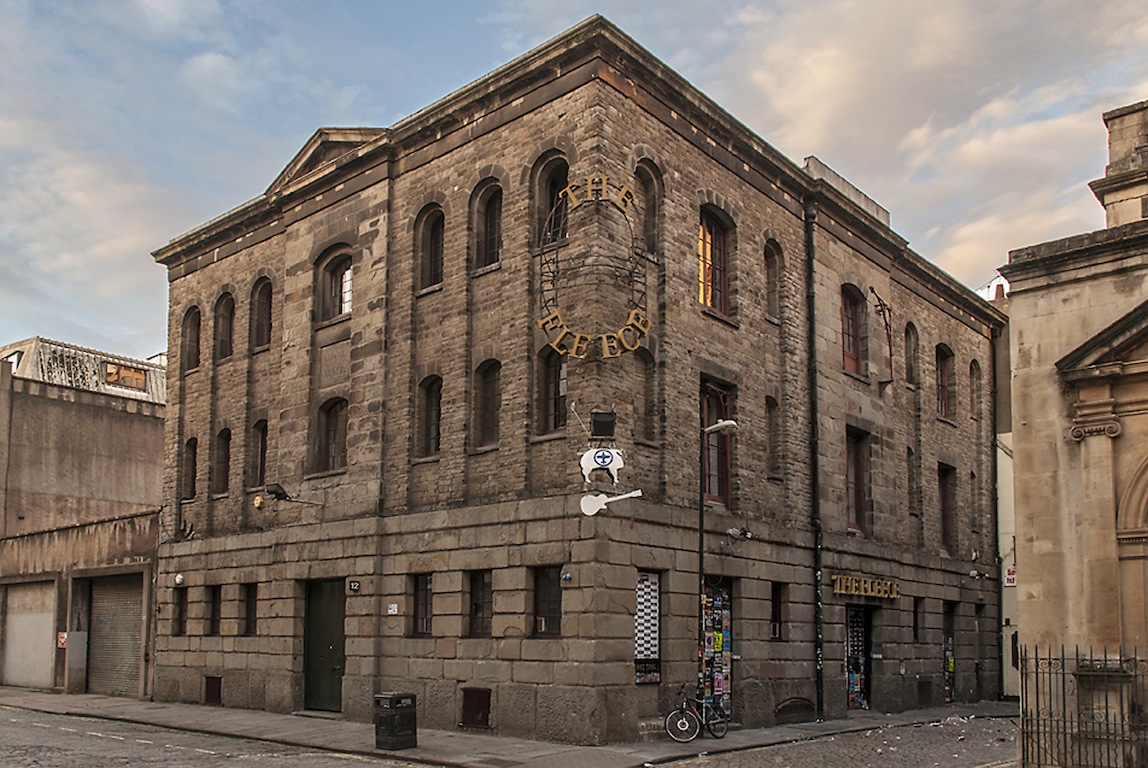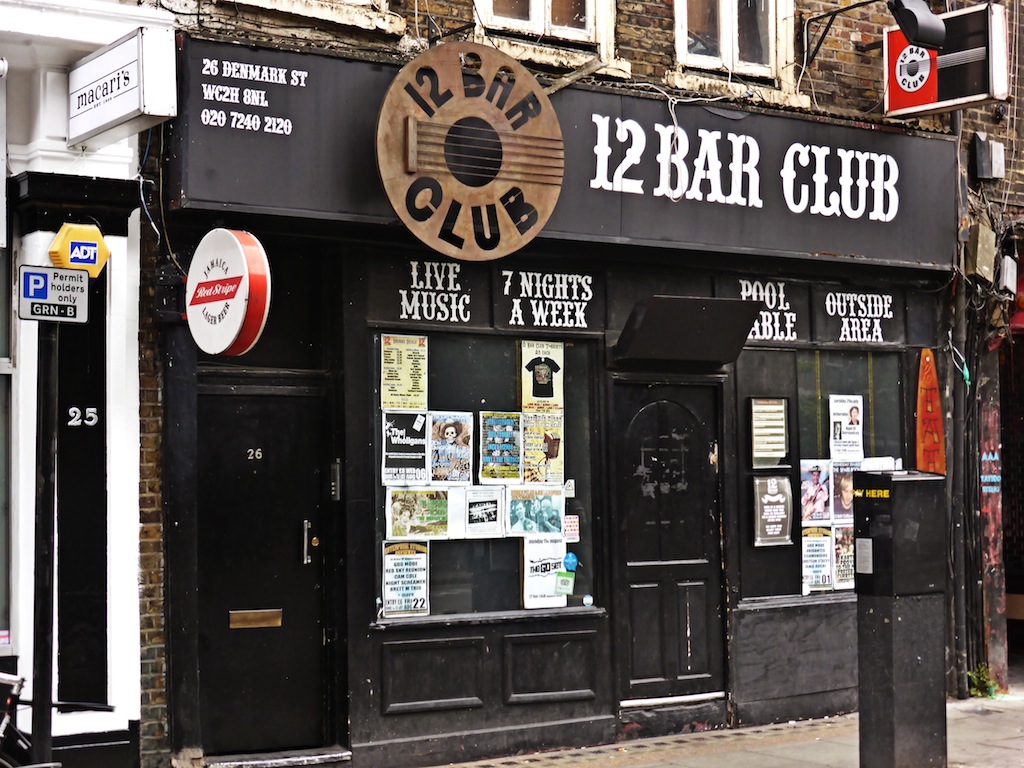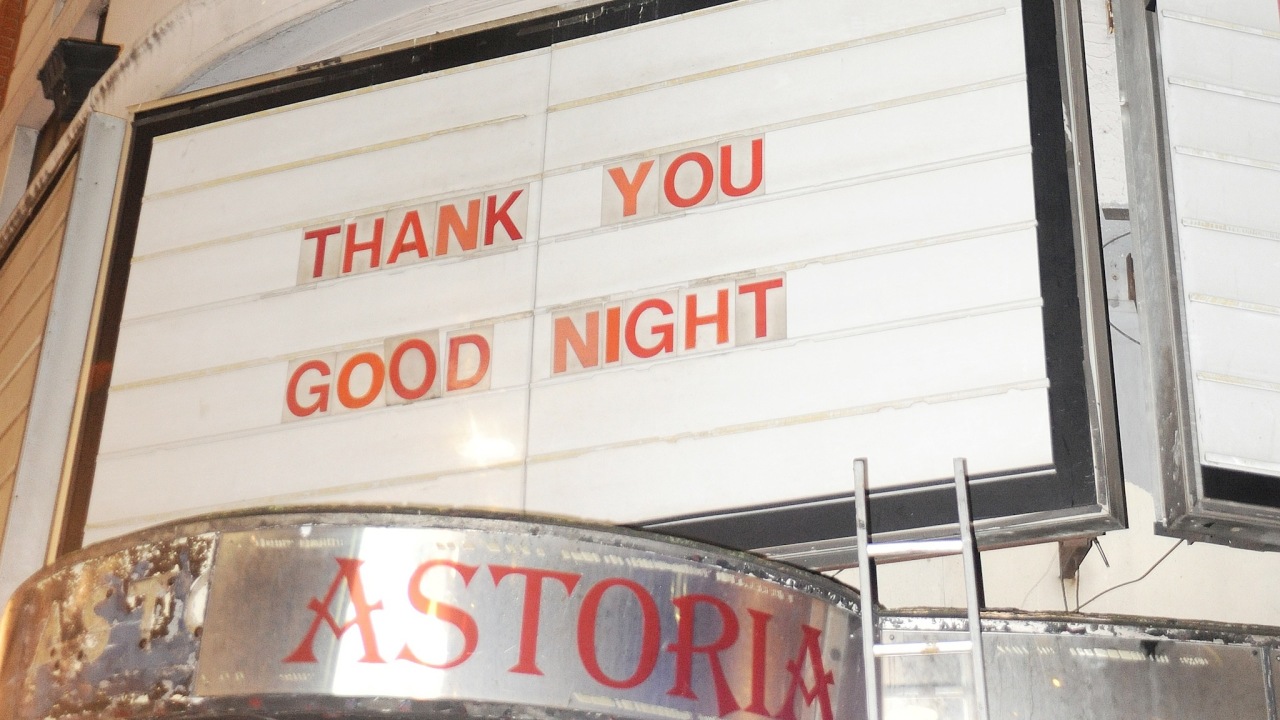The Fleece, Bristol. The Boileroom, Guildford. The 12 Bar, Denmark Street. Night & Day Café, Manchester. The Vault, Rugby. The Roadhouse, Birmingham. They’re familiar names from gig guides and tour posters and live reviews pages. They offer new acts their first professional gigs and play host to the circuit’s hardy travellers. They are close to the hearts of the rock fans who have seen bands there, and met friends there, and felt a part of something there that can’t be found anywhere else.
And they are under threat of closure. They are fighting hard not to go the same way as the Kentish Town Bull & Gate, Leeds Duchess of York, Newport TJs, Leicester Princess Charlotte, the Astoria in central London and others that have closed their doors for the final time in recent years. They are part of a quiet and hidden crisis that could have profound and irreversible effects on live music in this country.
The Music Venue Trust, established in 2014 in response to the ongoing threat to the nation’s live music pubs and clubs, are in the process of discovering exactly how many local live music venues we have left in Britain. Their CEO, Mark Davyd, estimates that the audit will reveal somewhere between 80 and 120. Of those, twelve are currently at risk of closing.
“Or put another way,” he says, “ten per cent of the entire circuit. But realistically, with recent changes in legislation, all of them are.”
The nation’s small venues are trapped by diminishing revenues, changes to the planning laws and the ubiquitous threat to their licences by noise complaints. It’s hard to see the future as anything other than bleak. Just last month, Brighton’s Blind Tiger club became the latest to slip out of existence, closed after being served with a noise abatement notice by the council.
“Without these venues we are looking at a cross-industry meltdown of talent creation, of experience and skills,” says Davyd. “And not just musicians. What about the sound engineers? Where did the sound engineers at Glastonbury learn to do that? Probably by turning up at their local venue and volunteering. They are real life colleges, the reason why we’ve got such a fantastic British music industry. But there aren’t many of these venues making any sort of money, and many are being run pretty much on a volunteer basis. In previous years, when a Leicester Princess Charlotte shut down, another would spring up, but that’s no longer the case. Leicester, for example, is currently without [a venue of that size].”
Blues rock guitarist Larry Miller has been a strong presence on the circuit for more than 30 years. Since turning professional in 2006, he has been growing his career on the back of relentless gigging. Small venues got him started, and he has been able to move on to larger capacity arts centres and theatres. He sells significant numbers of CDs and merchandise at his shows.
“When I first started off I came to the conclusion that I had to make this happen myself,” he says. “I phoned every venue where I could see bands similar to me and tried to get in, which is basically what I’ve done all along. Once you’ve done well in a few places, you can see on the map what the next venue up is in that vicinity, and you call them. They need to survive, they need bums on seats, and if you can assure them you’ve built it up to pull X number of people right next door to them, they will take you on. It’s delicate really. You need them, and they need you.”
While every club that is under threat has its own story, there are common themes. A live music venue requires a licence from the local council in order to operate. Complaints from residents about breaches in those terms, particularly with regard to noise abatement and nuisance, can result in the withdrawal of that licence and the closure of the venue. Recent government legislation designed to free ‘red tape’ and allow developers to convert office buildings and industrial structures into domestic dwellings compound that threat.
Guildford’s Boileroom, which owner Dominique Frazer has built into a thriving local business since converting the venue from an old pub called the Elm Tree in 2006, has four other pubs on the same street, which is also a busy night-time cut-through to the town centre. Recent complaints from residents who moved close to the venue since it opened have prompted a review that could result in anything from a change in licence conditions regarding opening hours or the use of the venue garden to a full closure. A petition to keep the venue’s licence has been signed 16,000 times.

“We’re very aware that we need to minimise nuisance to our community,” says Frazer. “We feel that we do all we can. Acoustic noise does require specialist knowledge, as does dealing with the Licensing Act. We have conditions on our licence that we must adhere to, and we do that. One states that we will do regular noise checks and if we perceive any noise breakout we will remedy that immediately. That’s what we do. It would be naïve to suggest that public houses and live music venues don’t create any nuisance ever, because we do. But it’s the tolerance of the people who choose to live within our community and how we as a business remedy that. It’s not our fault that we’ve made a success of our business.”
The council must balance their duty to residents in enforcing the licence conditions with their wider commitments to the success of the ‘night-time economy’ to which live music contributes.
Paul Spooner, Lead Councillor for Licensing and Governance at Guildford Borough Council, tells Classic Rock: “We are treating the licence review for the Boileroom in exactly the same way as we would any other request for a review. There is a standard procedure that we must follow and now that the consultation is closed, the application will be determined by the licensing sub-committee, probably in September. The applicant, premises licence holder and any others who have made a relevant representation will be invited to attend and will have the chance to speak if they wish.”
It is hard for councils to do anything other than dead-bat responses to individual cases. They cannot appear to favour either side. However, Mark Davyd, and many others, see an intrinsic unfairness in a system that allows complaints from residents aware of the area into which they choose to move.
“It’s the permanent rights of a temporary resident,” says Davyd. “Since we’ve been running this campaign we’ve found a speedway track in Norwich where they’ve built some flats, and the residents don’t like the sound of motorbikes. We’ve got a church in Dorset where someone is objecting to the sound of bells. I could tell you about a single complainant who we know is leaving their residence in January, and yet their complaint might still close down a live music venue. If you are the person who has moved next door to something, it should have been in your concern.”
Bristol’s Fleece has been operating since 1982, and has never attracted a noise complaint due to its location in a non-residential area. Changes to planning laws to meet an overwhelming shortage of housing across the country has seen a developer, Edenlaw Ltd, granted permission to convert an office building into 80 apartments, some of which will be less than 65 feet from the Fleece. The council are unable to insist that the developer install any kind of sound insulation. Their only statutory power is to make the venue alter its soundproofing once the flats are occupied.

Fleece owner Chris Sharp launched a petition that quickly received 40,000 signatures and the support of the Mayor of Bristol, George Ferguson. Edenlaw said claims the Fleece would have to close because of the inevitability of noise complaints once the flats were occupied were, “not true. Whilst we are keen to see our building given a new lease of life, we certainly have no wish to see The Fleece close.”
“What’s happened is that we’ve failed to put in something called the Agent Of Change principal,” says Davyd of the legislation. “It’s been adopted most notably in Australia, and it is common sense. It says that you can do whatever you like in terms of planning, but if you’re doing something as a developer, you are responsible for the outcome. In the case of the Fleece, under this principal, the developer would be responsible for soundproofing the flats. As it stands, it becomes the responsibility of the Fleece. The Fleece is really the big test case. There’s a letter from Kerry McCarthy, the local MP, which has gone to [Secretary of State] Eric Pickles and Sajid Javid, the Culture Minister, saying, ‘Just look at this one, and decide whether the law is adequate’. They’re going to build flats twenty metres from the stage and at the moment the local authority cannot insist that the planner put in proper soundproofing. They only have the power to do that with the venue after he’s built the flats. That is madness.”
The threat of development is ever-present, especially in London. The 12 Bar is located on Denmark Street, also known as Tin Pan Alley – just across the road from the former Astoria, which was itself demolished in 2009 as part of the government’s huge Crossrail transport project.

The 12 Bar appears to have some measure of protection, even though the street and a surrounding acre of land is about to be rebuilt to include a hotel, an underground arts centre and an urban walkway. Camden Council have put a no change of use clause into the planning permission for Denmark Street, and the developer, Laurence Kirschel, has a longstanding commitment to retaining the integrity and history of the street and its music shops. Despite all of this, and an 8,000-signature petition to save the 12 Bar, which gave London debuts to Jeff Buckley and Seasick Steve, the fact that building work may take up to eighteen months, plus uncertainty over the levels of rent in the longer-term, could see the venue and some of the shops close anyway.
The fate of the circuit in part lies with its fans. The Music Venue Trust has a petition, which exceeded 10,000 signatures and thus required a response from the relevant government department. Davyd is considering the MVT reply. If the petition reaches 100,000 signatures, the Government Backbench Business Committee will have to consider the matter for debate.
“The petition is quite key,” says Davyd. “We will soon be campaigning hard on the Agent of Change principal. We’ll be campaigning behind the slogan ‘Don’t Kill Live Music’. Use your social media space to spread that message. We will also be working to ensure some national guidelines on noise abatement. Venues need information and guidelines and so do environmental health officers. What we have at the moment is random. If an environmental health officer leaves their post, a town’s opinion of what constitutes a noise can change with the next officer, and that can’t be right.”
There is one other action fans can take too – perhaps the most significant of all.
“Go to your local venue,” says Davyd. “If everybody that had expressed support for this – the thousands of shares we’ve had on social media – if every one of those people went to their local venue once a month, we would change the economy of these local venues overnight. It really is one of those things – you won’t know what you’ve lost till it’s gone.”
For more on The Music Venue Trust visit musicvenuetrust.blogspot.co.uk. This feature originally appeared in Classic Rock 201. Copies can be ordered online from MyFavouriteMagazines.

